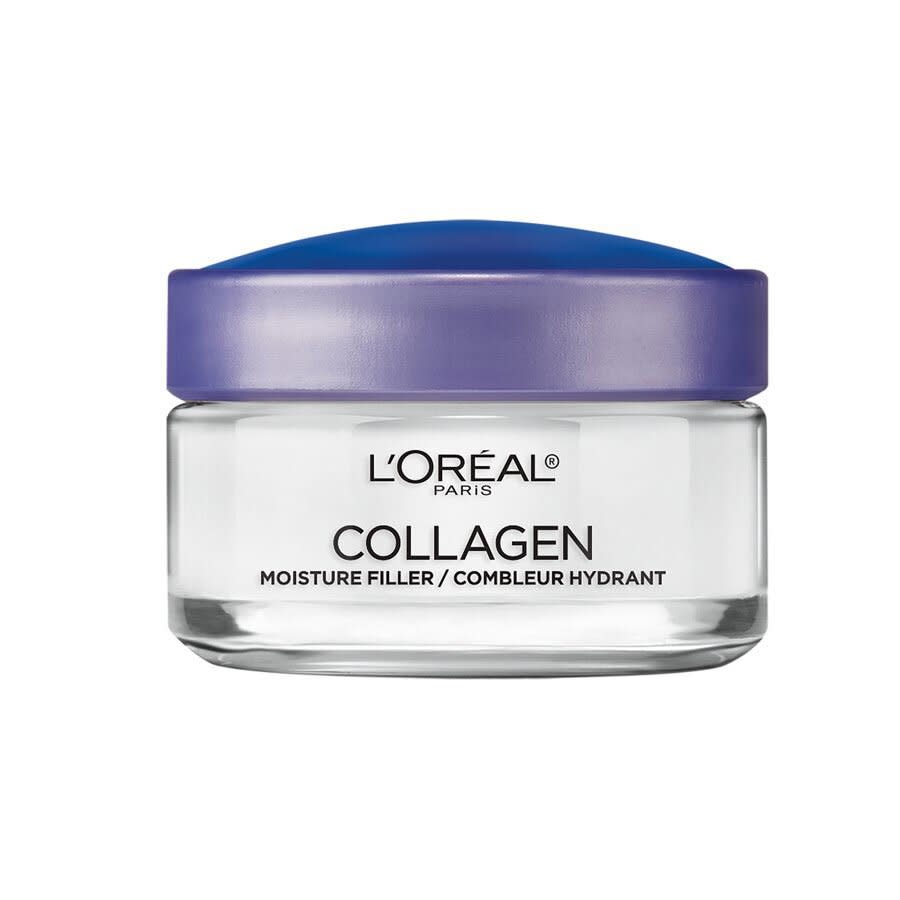Every Question You Have About Collagen in Skincare, Answered
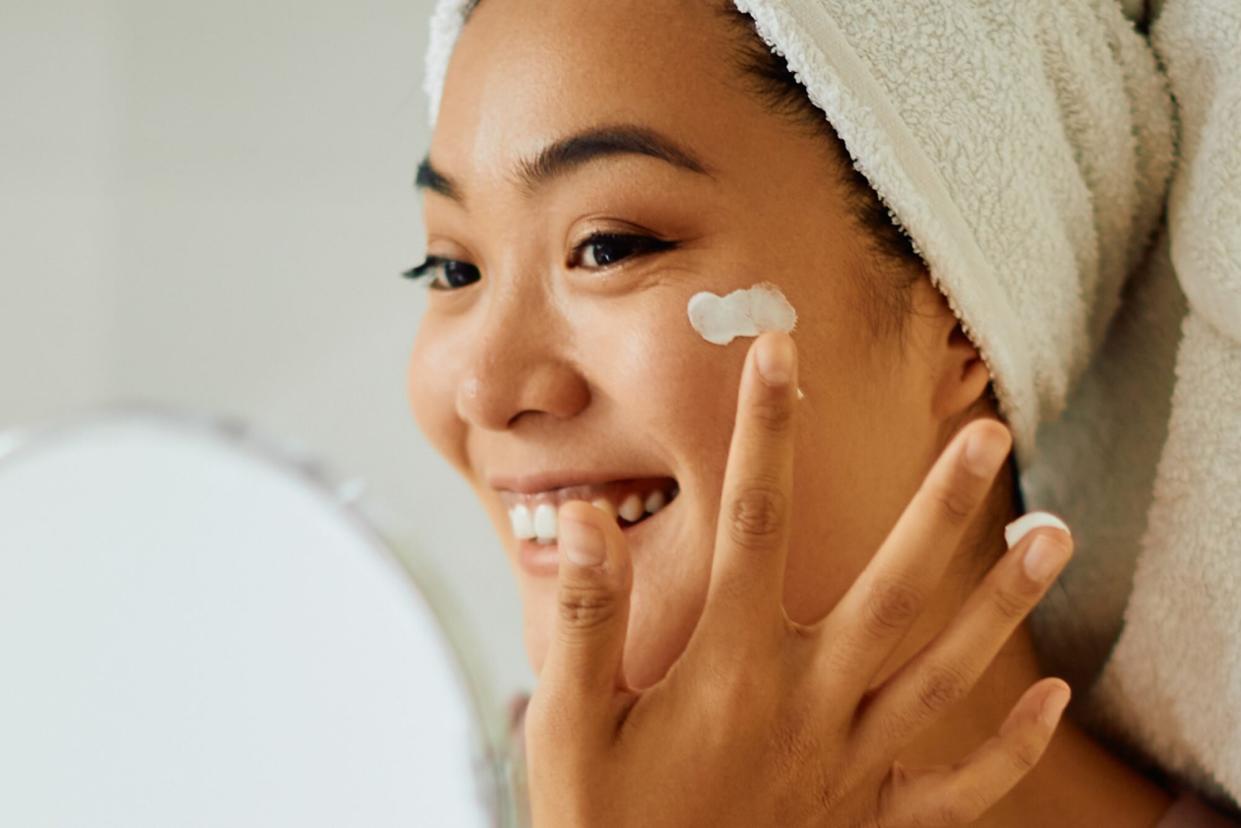
Getty Images
Next to retinol, no anti-aging ingredient enters the chat as often as collagen. But the ingredient is more than a buzzword: collagen naturally occurs in the body and is responsible for maintaining firm, plump, and what is considered youthful, skin.
In recent years, collagen creams and oral supplements have become bonafide skincare and wellness trends. These products promise to hydrate the skin and restore collagen production to minimize fine lines, wrinkles, and loss of elasticity, but is collagen really a wunderkind skincare ingredient like retinol?
Let's get to the bottom of the collagen craze with the help of Dr. David Kim, board-certified cosmetic dermatologist at Idriss Dermatology in New York City, Ginger King, cosmetic chemist and founder of FanLoveBeauty, and Rowan Hall-Farrise, QMS Medicosmetics global educator and esthetician.
RELATED: The Dos and Don'ts of Mixing Skincare Ingredients
First, What Is Collagen?
Collagen is one of the most abundant proteins in our bodies and is the main component of connective issues, including the skin. Most of the skin's collagen sits and is produced in its second layer (the dermis, which sits under the epidermis). Collagen consists of a chain of amino acids that make up the protein.
The protein is responsible for maintaining the firmness and elasticity of skin, but our bodies naturally produce less collage as we age, which leads to fine lines, wrinkles, and sagging. "We start to lose collagen pretty early starting in our mid 20s, and it continues to go down until our 50s and 60s," says Dr. Kim.
In topical skincare products and oral supplements, the collagen is a little different than what's found naturally in our bodies. "It can come from animal sources like chicken or pigs, or from marine like fish," King shares. The cosmetic chemist says vegan collagen in products comes from plant sources.
What Are the Topical Benefits of Collagen?
Topical products aim to smooth fine lines and wrinkles, boost firmness, and hydrate the skin by strengthening existing collagen and kickstarting collagen production. There's not enough research on the ingredient to confirm these claims (while manufacturers and brands may do their own), but at the least, topical collagen will hydrate the skin, which in turn can make it appear smoother and plumper.
However, collagen peptides have a smaller molecular size and may be able to better penetrate the skin.
"They could make a difference in fine lines and wrinkles, but is it going to make a dramatic difference? Probably not," says Dr. Kim. "But I do think it's beneficial to use topical products infused with these peptides so that there are building blocks for the skin cells to use and produce more collagen."
The bottom line? Incorporating a topical collagen product into your skincare routine can still be beneficial to help the skin retain moisture. "Collagen is able to work as a second skin to protect the barrier function, it absorbs into the stratum corneum ( top layer of skin) to lock and hold hydration in that would normally be lost through environmental stress," Hall-Farrise explains. "As we age, our barrier function also depletes, which is why it's very important to include collagen into our daily skincare regimen."
When choosing a collagen product to incorporate into your routine, Hall-Farrise stresses the importance of looking at what type of collagen is in the formula. "At QMS, we work with bovine collagen as it is 97% skin identical, which means that the skin can recognize it and it absorbs on to the skin for up to 72 hours," she says. "Marine collagen is a popular ingredient used in the market however it is only 77% skin identical and as it is derived from fish and has a lower body temperature to our own so it will degenerate ("die") after only a few hours and you don't have such a long-term effect."
VIDEO: What Exactly Are Parabens Anyways?
What About Collagen Supplements?
There are a ton of fancy collagen powders on the market to add to smoothies or coffee, but King points out eating collagen-rich food has always been common practice in some Asian countries.
That said, dermatologists give supplements mixed reviews. "A lot of times you'll see an increase in skin moisture and a decrease in epidermal water loss," Dr. Kim says of supplements. "We can't say it's a slam dunk. The supplements have to filter through the liver to get to the rest of the body, so it's hard to quantify how much of it gets to your skin."
Collagen Skincare Products to Add to Your Routine
QMS Medicosmetics Day Collagen Sensitive Serum
Include this serum in your AM routine to boost hydration and protect skin from free radicals.
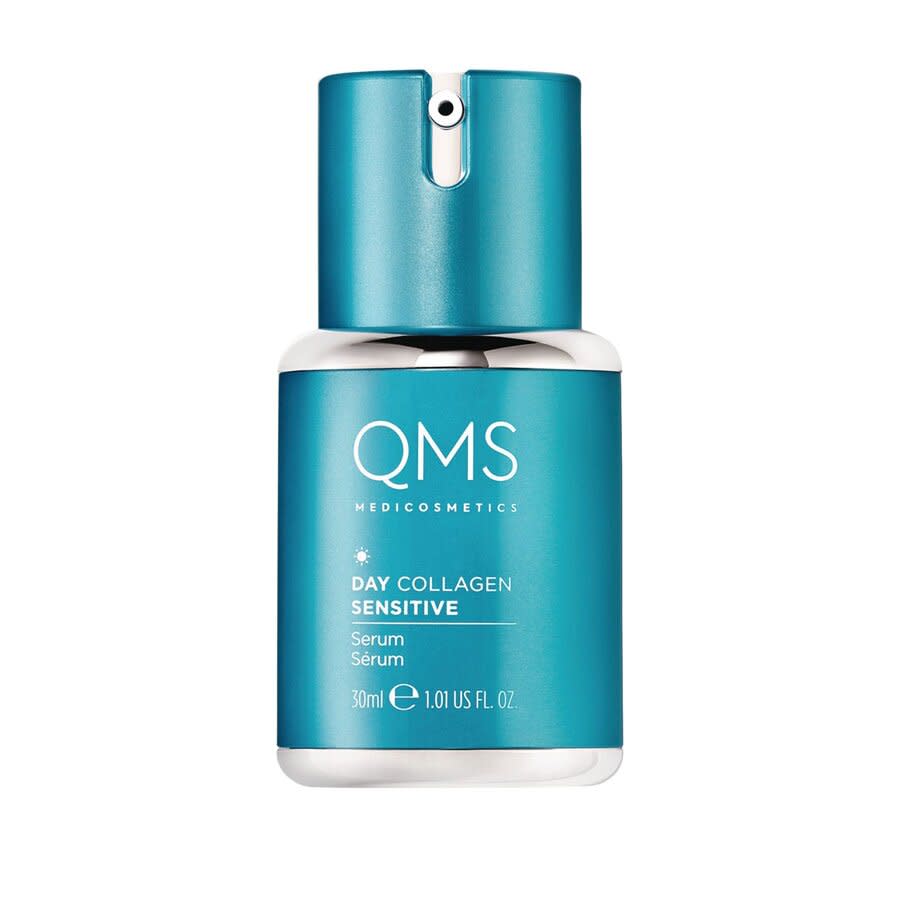
Elemis Pro-Collagen Marine Cream
Elemis' anti-aging moisturizer is formulated with marine-derived collagen to smooth and plump skin.
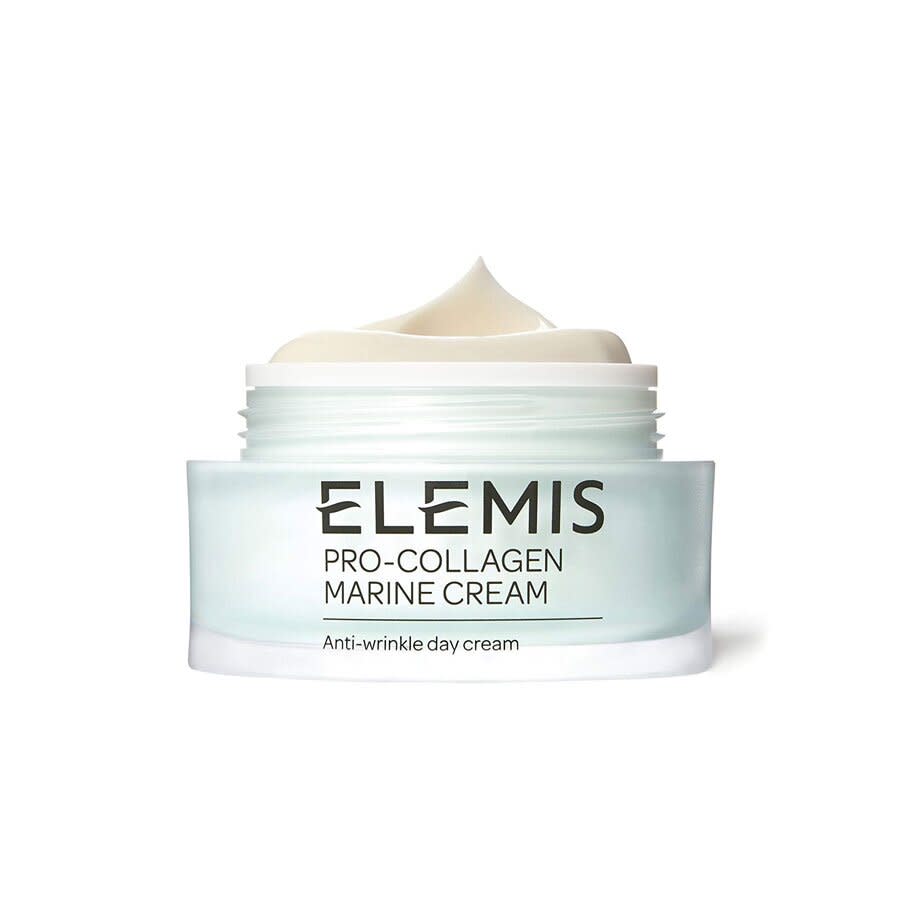
Olay Regenerist Collagen Peptide 24 Face Moisturizer
While Olay's moisturizer might be lightweight, it's heavy on hydration. The formula is packed with collagen peptides and vitamin B3+ to also smooth, brighten, and firm skin.
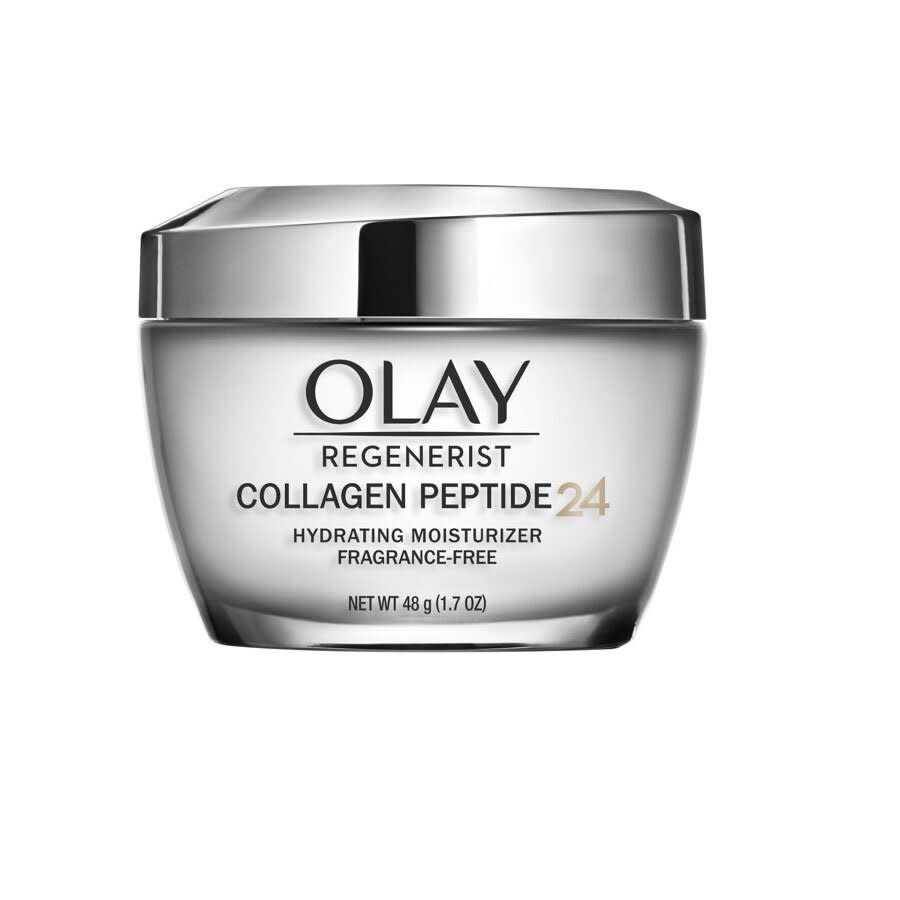
Algenist Genius Liquid Collagen
This serum combines plant-derived collagen and marine oils to improve skin's firmness and reduce fine lines and wrinkles.
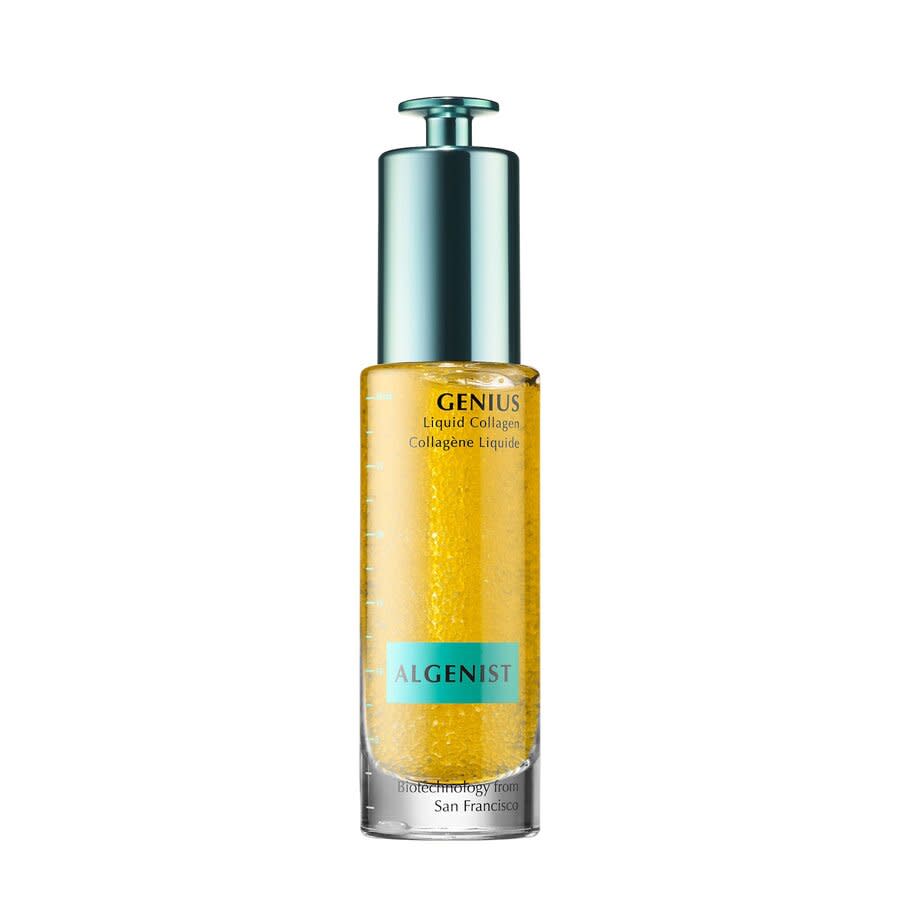
L'Oréal Paris Collagen Moisturizer Filler
Use this wildly affordable cream day and night for hydrated, bouncy, and firm skin. Based on the brand's evaluation of 50 women, 78% of testers saw filled in wrinkles in just four weeks.
